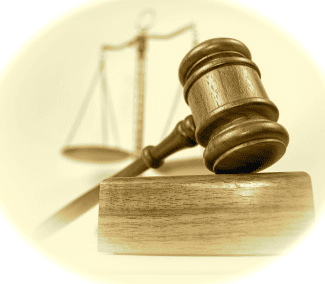*
In the third instalment of a new weekly Monday column, Tell Me Why, the Independent’s brilliant man in the north-west, Ian Herbert, asks whether we are too quick to play judge and jury in some cases where famous people have been accused of abuse, and examines how, in others, society appears quite comfortable to apply 2012 moral values to events from many decades past.
.
10 December 2012
The veteran commentator was conspicuous by his absence from the weekend’s football programme and will remain off the airwaves, charged on three counts of indecent assault between 1974 and 1984.
Justice is the requisite outcome for anyone who has been subjected to abuse.
Our sympathy for them is a given.
So is our demand that any who have committed crimes be pursued to the last.
But whether the legal system finds Mr Hall guilty or innocent, he will always be tainted now – and in very large measure because of an offence he was initially questioned in connection with, but which was subsequently dropped.
Removed from the Lancashire Police investigation though that offence was, it did not disappear quite so easily from some reports of the “historic allegations” against Mr Hall which were published the next day.
Search for Mr Hall on the BBC news website and the story of that more serious offence is the first one that pops up. It’s a story with potential to create a very different, and potentially very misleading sense, of what the BBC sports presenter is accused of, if his case goes before a jury.
So might be the words which Mr Hall offered three years ago, which we were reminded of on Thursday in the reporting of his arrest and charges. “Do your own thing,” Mr Hall said. “I’ve always done mine. I was called the Lord of Misrule early in my career. I’ve really never grown up.”
There’s a problem, here, with the lack of consistency in what police reveal about those whom they take into custody. Some forces identify suspects and their alleged offences as soon as they are arrested. Some forces only do so when they are charged. Some only when they appear in court.
My friend David Banks, the media lawyer and writer who blogs here believes that some Association of Chief Police Officers’ uniformity would be helpful. But that doesn’t help us to understand the zeal with which Mr Hall’s arrest was seized upon last Thursday.
The victims of abuse must of overwhelming concern, but there does seem to be a collective thrill about bringing down those whom we once built up. It’s starting to feel a bit like mob rule.
Lancashire police have confirmed that the Hall allegations, which the presenter strongly denies, are not related to Operation Yewtree, the investigation into Jimmy Savile, not that you would know it, to judge by some reports.
Defending anyone charged with alleged offences of a timeless seriousness isn’t a comfortable exercise but innocence until proof of guilt is one of the cornerstones of our legal system.
And in some of the other cases which we are learning so graphically about, day after day, there does seem to be the application of a 21st century morality to what went on 40 years ago.
This theme emerges most strongly in the strongest piece written on Savile, by Andrew O’Hagan in last month’s London Review of Books.
The article is vast but at its core is the illustration it provides of how the BBC set-up of Savile’s time – with Benny Hill, Carry On Camping and other double-entendre filled products of the Corporation BBC Light Entertainment department – was one in which stars were made out of weirdos.
We liked the weirdos. We laughed at them. “The 1960s weren’t tolerant, as they are said to have been. They were mixed up,” O’Hagan writes and it is Joan Bakewell, who worked in the midst of some of these people, who tells him how the ethos of young girls willingly following Savile to his hotel room only now looks so horrible and bent.
“You can’t re-create the mood of an era,” Bakewell says. “You just can’t transfer our sensibilities backwards from today. It would be like asking Victorian factory owners to explain why we sent children up the chimneys. It’s the same with the BBC I first entered. It had habits and values that we just can’t understand from the point of view of where we are now.”
If the moral perspective is different, then so is the media machine.
To draw all of this back into the football world, it is Sir Alex Ferguson who observes time and time over that it is the 24-7 media environment which drives and distorts events in a way that means more is often less, where quantity’s relationship with quality is concerned.
Ferguson does have firm views on Leveson and they were encapsulated at Carrington the Friday before last, on the morning he joked about David Cameron’s decision to “let you lot off the hook” effectively by dismissing the central recommendation of the Leveson report.
“What’s changed is the intensity of journalism is more severe, you’re under pressure a lot more,” he observed, a very familiar theme for him.
There’s another reason why Stuart Hall played so heavily, topping the teatime bulletins on Wednesday evening on the BBC, the station that has always been so enthusiastic about him.
If we want to start applying retrospective moral standards, then it makes you wonder how any number of our sporting heroes would have survived in today’s environment. Quite simply, we wouldn’t have any heroes left.
Tom Simpson is as good an example as any in the year when the scourge of drugs in cycling revealed itself so vividly. His death in the heat of the steep Ventoux climb is part of his heroic legend. He was the BBC’s Sports Personality of the Year in 1965, the only cyclist to have been so until Chris Hoy won in 2008 and Mark Cavendish in 2011.
But his death came after he had taken a combination of amphetamines, alcohol and diuretics.
And how might differently might George Best preoccupy us today? Wayne Rooney’s assignations with the ‘escort girl’ Jennifer Thompson became one of football’s defining stories of 2010 and were provided as evidence of why he failed at that year’s World Cup.
Compare those with the way Best’s nocturnal pastimes went unreported in the 1960s. Nocturnal doesn’t even describe it, actually. When Michael Parkinson asked Best about the stories of him having sex before a game, he replied that he’d once managed it at half time. When Best didn’t perform at his best in the second FA Cup replay against Leeds United at Villa Park, before 58,000 people in 1970, the footballing assumption was that Paul Reaney always had the better of him.
It leaked out months later that Best had been at it on the afternoon of the game. It didn’t even make a back page lead.
Yes, the comparisons do run the risk of trivialising alleged crimes which are not trivial. But they do point to the ways that “what we now find unacceptable was just accepted back then by many people,” as Bakewell puts it.
Though Stuart Hall has protested his innocence, you probably wouldn’t know of it because that didn’t get much coverage either, of course.
The man whose enunciation of words like ‘zenith’ and ‘cornucopia’ always seems to be a source of such mirth in the studio, is heard no more.
“In light of the very serious nature of these charges Stuart Hall will not be working at the BBC while the police continue with their inquiries,” a BBC spokesman said.
.
Ian Herbert is a sports correspondent for The Independent (see archive of his work here). Follow Herbie on Twitter here.
.










